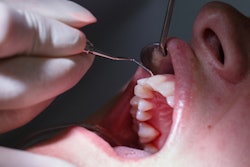
Organized dentistry needs to develop updated treatment- and outcome-based guidance for periodontal therapy to avoid providing inadequate care to patients, according to a guest editorial published on June 14 in the Journal of the American Dental Association.
The ADA's method-based guidelines that were issued nearly 10 years ago are outdated and offer limited value since they do not include advanced technology or the last relevant therapies. With a growing cache of studies suggesting periodontitis is a risk factor for diseases, including atherosclerosis and stroke, updated clinically based guidelines are needed, the authors wrote.
"It is imperative that organized dentistry establish updated periodontal guidelines that include both treatment methods and determination of treatment outcomes," wrote coauthor, Dr. Stephen Harrel, a clinical professor at the Texas A&M College of Dentistry in Dallas.
Currently, about 42% of people in the U.S. are between the ages of 30 and 75, which is equal to approximately 81 million individuals.
In 2015, the ADA released nonsurgical guidelines for periodontal therapy that were supposed to be updated five years later. Nearly twice as much time has passed and neither the ADA nor the American Academy of Periodontology have made updates. In 2020, the European Federation of Periodontology published clinical practice guidelines for stage I through stage III periodontitis and for stage IV periodontitis in 2022.
However, the existing guidelines are good references for those in academics but may be difficult for dentists to use to make decisions in clinical practice. Both sets of guidelines fail in that they don't emphasize the need for continuous and thorough reevaluation of the patient's response to periodontal therapy, the authors wrote.
Furthermore, a vital evaluation of long-term periodontal therapy outcomes and a recommendation for advanced therapy, when needed, will circumvent poor treatment that often results in unnecessary bone and tooth loss, they wrote. Updated guidance should echo those in clinical medicine and most dental specialties, the authors wrote.
"Such guidelines are necessary for the proper care of patients and to avoid inadequate periodontal therapy," Harrel and coauthor Dr. Charles Cobb, MS, PhD, wrote.



















